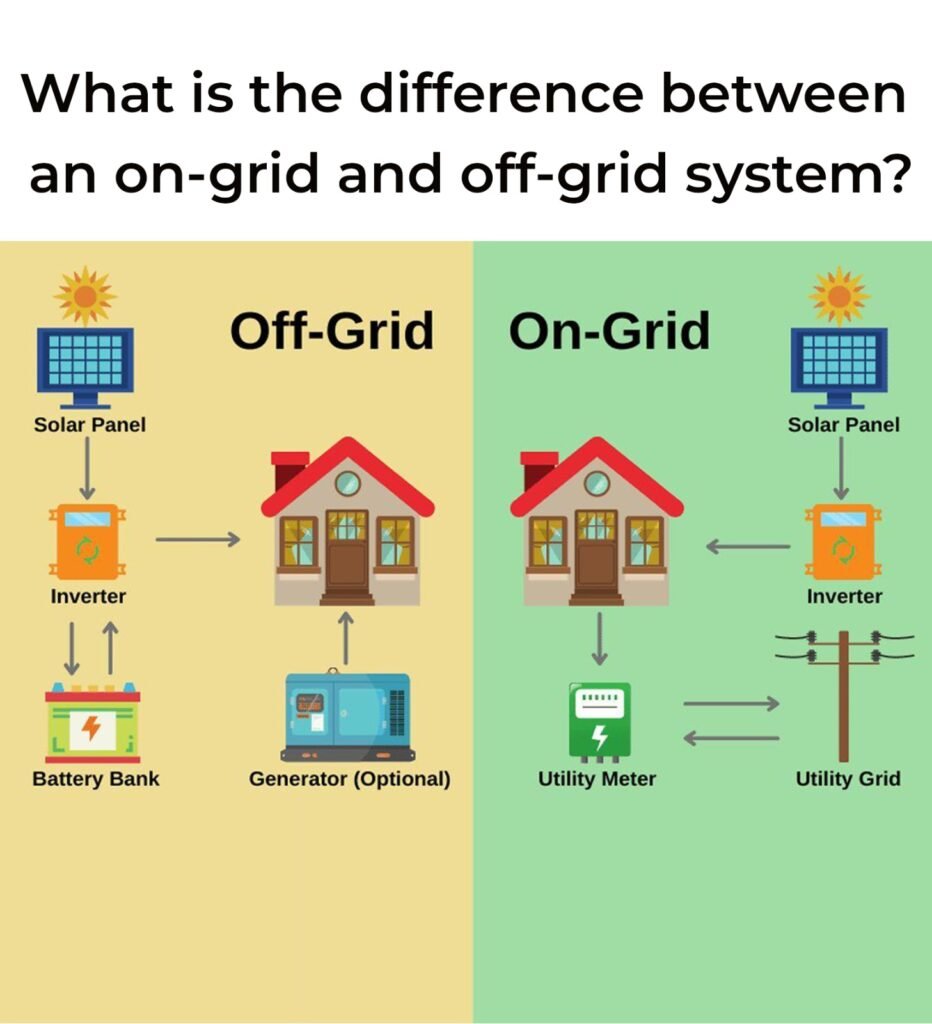What Are the Differences Between On-Grid and Off-Grid Solar Systems?
What Are the Differences Between On-Grid and Off-Grid Solar Systems?

Answer:
When deciding which type of solar system is right for you, you must carefully consider your specific needs and circumstances. For example, if you live in an area with frequent power outages, an off-grid or hybrid solar system is an excellent choice to ensure a reliable source of electricity. On the other hand, if you want to partially reduce your carbon footprint and save some money on your electricity, an on-grid solar power system could be a solid choice. It may allow you to participate in net metering and can also be more secure in a location that has a reliable electricity infrastructure and doesn’t get much peak sunlight.
Ability to Access Grid Power
Grid-tied homes don’t need to rely exclusively on solar energy. During extended periods of cloudy weather, off-grid systems have the potential to run out of power. On-grid homes can always draw electricity from the utility company as needed.
Excess Production
On-grid systems can pay dividends when the system produces power in excess of your needs. If your utility company supports net metering, sending excess energy back to the grid can make you money. You will typically receive credits on your electric bill for the energy you contribute back to the grid.
Power Outages
Off-grid solar systems provide peace of mind to homeowners who live in areas with a history of power outages or extreme weather. They can continue to have access to electricity even when the grid goes down.
Electric Bills
Another advantage of off-grid solar systems is that you do not have to pay electric bills as long as you produce your own power. Eliminating electric bills can be a significant cost saving for homeowners, especially in areas with high electricity rates. You can save hundreds or even thousands of dollars annually by producing your own electricity.
Overall Cost
While you will not have to pay electric bills with an off-grid system, they require a significant upfront investment. Luckily, there are many government programs and tax incentives to help defray the initial costs.
Off-grid systems with LFP batteries require little to no maintenance, and solar panels routinely last over 25 years without needing to be replaced. If you’re in it for the long haul, off-grid solar can be an excellent investment—especially as the price of traditional electricity sources like fossil fuels continues to rise.




